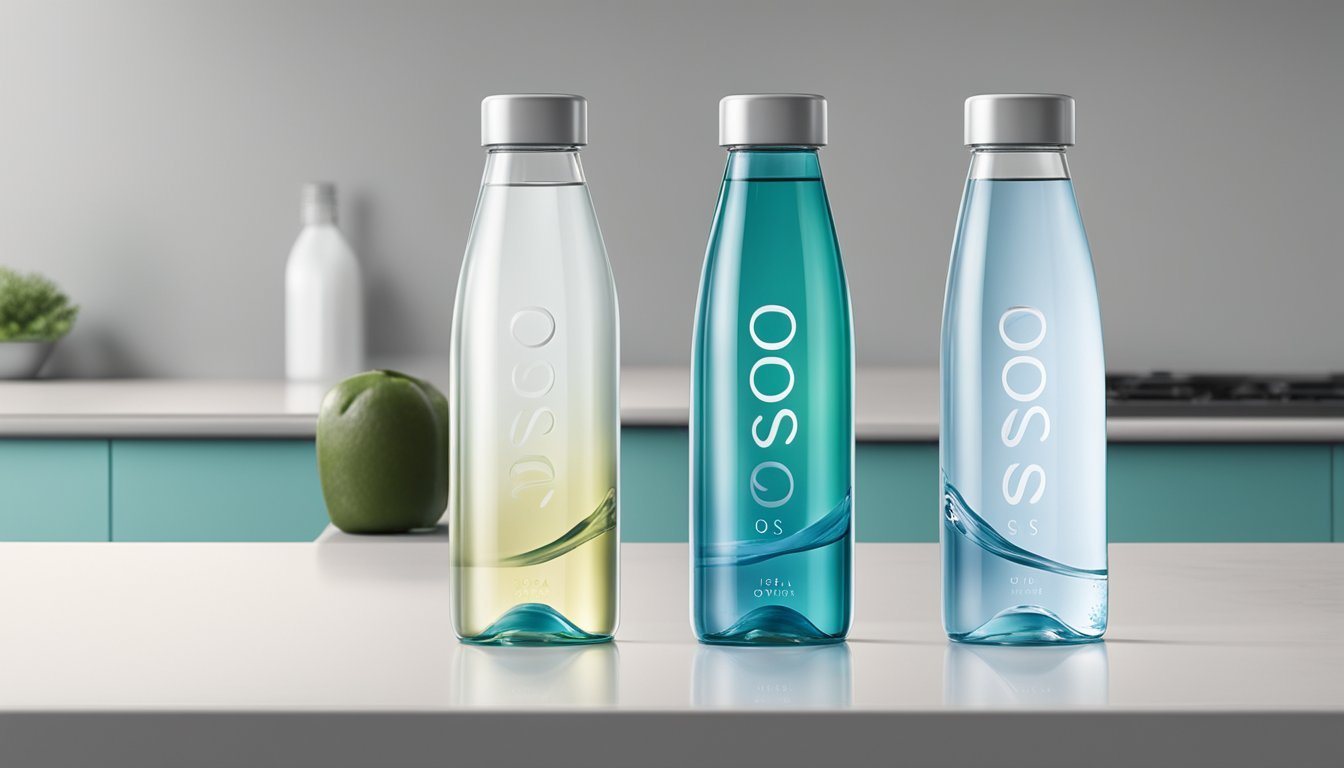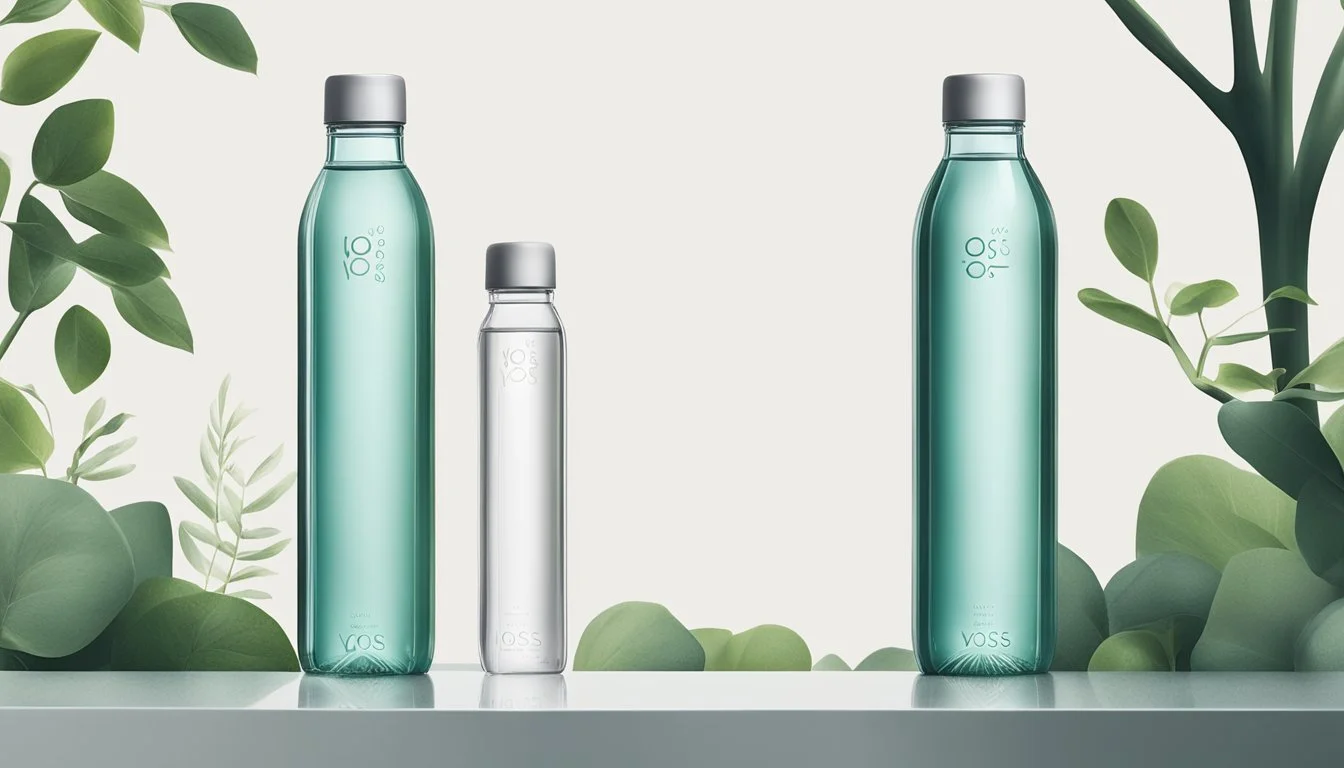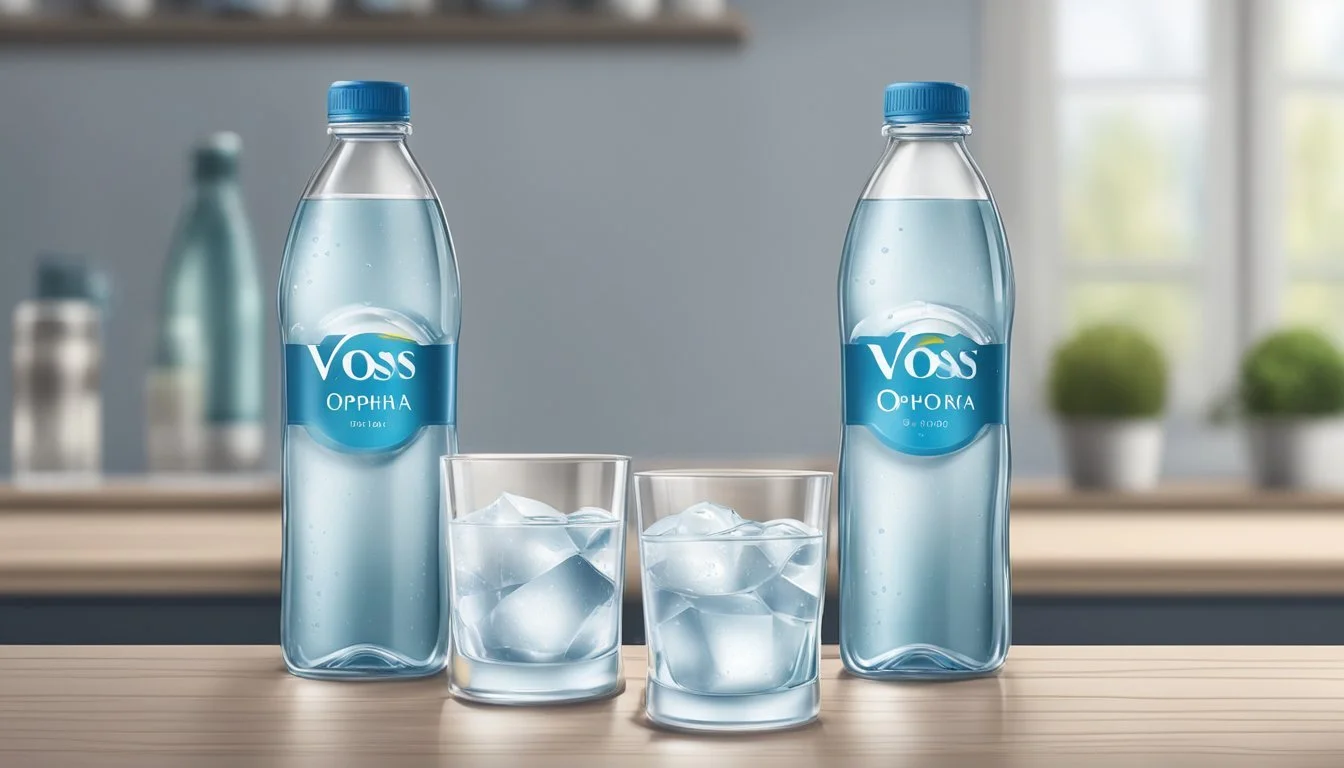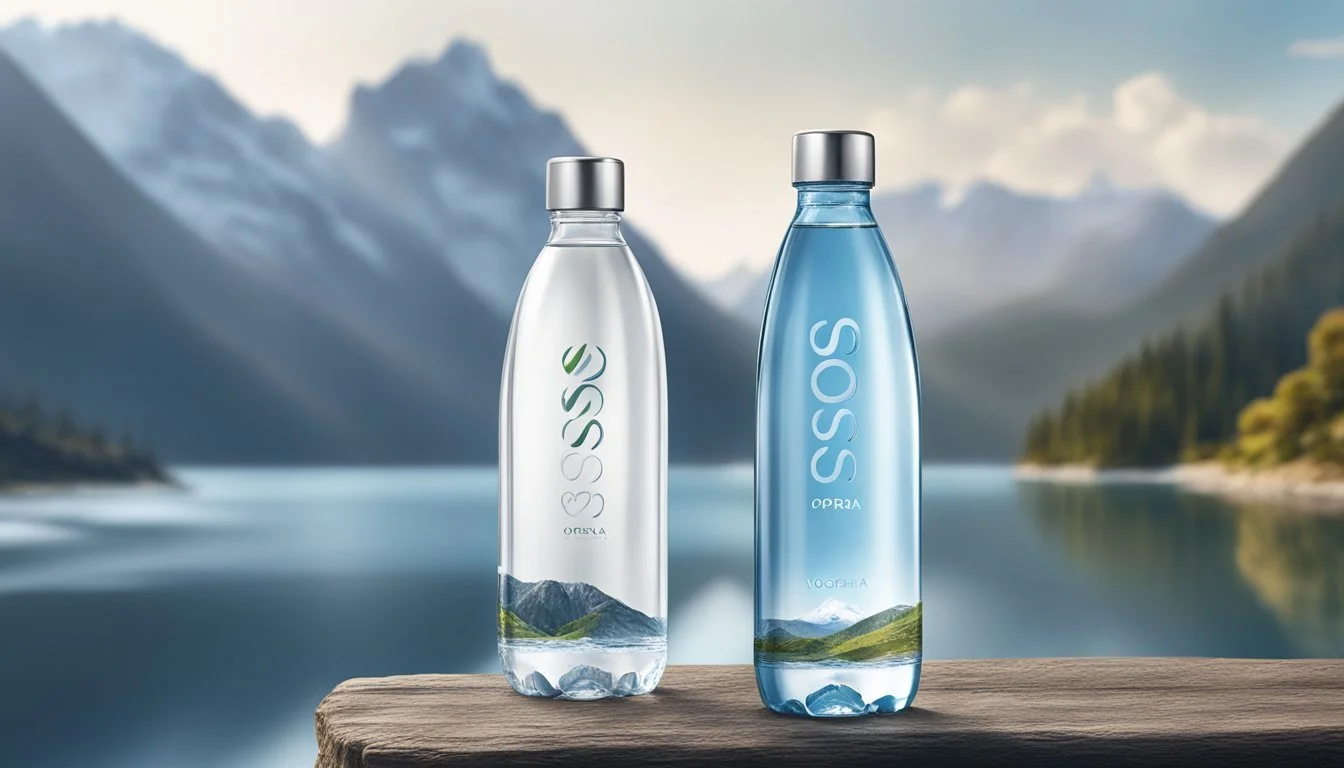Voss vs. Ophora
Which Bottled Water Offers Superior Quality?
When it comes to choosing between Voss and Ophora bottled water, enthusiasts and casual drinkers alike often find themselves in a quandary. Voss, known for its sleek, minimalist bottle design, offers a refreshing experience with its Norwegian artesian water. On the other hand, Ophora markets its water as being enriched with oxygen and essential minerals, promising a health-focused alternative.
For those prioritizing purity and a crisp taste, Voss stands out as the superior choice. Its clean, smooth profile makes it a favorite among many. Meanwhile, Ophora appeals to health-conscious consumers with its nutrient-rich formulation, catering to those looking for added hydration benefits.
Despite these offerings, the ultimate decision depends largely on individual preferences. Whether one values sleek design and pure taste or seeks enhanced hydration benefits, each brand brings something unique to the table.
Understanding Bottled Water
Bottled water types vary based on their sources and processing methods. Each type adheres to specific regulations to ensure safety and quality.
Types of Bottled Water
Spring Water: This water comes from natural springs and retains minerals found at the source. It is collected as it flows to the surface or via a borehole tapping the underground source.
Purified Water: This type undergoes various treatment processes such as reverse osmosis, deionization, or distillation. These methods remove impurities and contaminants, making it suitable for drinking, though the mineral content might be lower.
Mineral Water: Contains minerals and trace elements originating from a geologically and physically protected underground water source. Minerals like calcium, magnesium, and potassium can contribute to the water’s flavor and potential health benefits.
Alkaline Water: Created either naturally or artificially, it has a pH level above 7. Proponents claim it neutralizes acid in the bloodstream and improves hydration, though scientific consensus is still debated.
Artesian Water: Sourced from a confined aquifer that has water under pressure. When tapped, the pressure pushes the water above ground. It often contains a variety of natural minerals.
Bottled Water Regulation and Standards
FDA Regulations: In the United States, the Food and Drug Administration (FDA) sets quality standards for bottled water to ensure safety and consistency. These are similar but not identical to the Environmental Protection Agency (EPA) standards for tap water.
Labeling Requirements: Bottled water must be clearly labeled with its type and source. This information helps consumers make informed decisions. Misleading labels or claims can lead to regulatory actions.
International Standards: Countries may have different standards and regulations for bottled water. Many international brands comply with multiple national standards to ensure global market access. The International Bottled Water Association (IBWA) also sets additional benchmarks for quality and safety.
Testing and Quality Assurance: Regular testing for contaminants such as bacteria, chemicals, and metals is mandatory. Adherence to good manufacturing practices (GMP) ensures the water meets safety and quality standards consistently.
Brand Profiles
Voss and Ophora represent two distinct approaches to bottled water, with Voss hailing from Norway and Ophora focusing on purity and innovation.
Voss Water: Norway’s Pride
Voss water is sourced from an underground aquifer in Iveland, Norway. The brand is known for its minimalist glass bottles and pure, clean taste. The water is naturally filtered, ensuring high purity without additional purification processes.
Voss emphasizes sustainability by using recyclable materials in its packaging. The brand's unique cylindrical glass bottle has become a symbol of elegance and sophistication, making it a favorite among luxury consumers. Voss sparkling water is also popular, offering a crisp, refreshing alternative to still water.
Ophora Water: Purity and Innovation
Ophora water is celebrated for its advanced purification technology. It undergoes a meticulous process that includes reverse osmosis, ozonation, and UV light treatment. This ensures the water is free from contaminants, providing an ultra-pure drinking experience.
Packaged in sleek, recyclable bottles, Ophora is often targeted toward health-conscious consumers. The brand also offers a line of oxygenated water, which is touted for potential health benefits like improved hydration and energy. The emphasis on purity and innovation distinguishes Ophora from other bottled water brands.
Water Source and Origin
Voss and Ophora source their water from distinct natural locations, each offering unique characteristics. A closer look at their water sources and purification processes highlights the differences.
The Natural Source Advantage
Voss: Sourced from an underground aquifer in Southern Norway, Voss is recognized for its pristine natural environment. The water is naturally filtered through layers of rock and sand, ensuring purity and a fresh taste. The isolated location protects the aquifer from pollution.
Ophora: Derived from an underground spring in California, Ophora emphasizes its artesian origin. This source is enriched by natural volcanic rock formations, which impart beneficial minerals. The spring's accessibility ensures consistent water temperature and mineral balance.
The Process of Purification
Voss: Utilizes a minimalistic approach to purification. The water is lightly filtered to maintain its natural characteristics. This ensures that the water's original quality is preserved, offering a clean and refreshing taste.
Ophora: Implements a rigorous purification system. This process includes microfiltration, reverse osmosis, and ultraviolet exposure to enhance purity. The goal is to provide water that is not only clean but also healthy, balancing natural minerals with modern purification techniques.
Water Quality and Composition
When it comes to Voss and Ophora bottled water, evaluating water quality and composition is essential to determine which is better. Factors such as pH levels and mineral content play a significant role in their health implications and overall hydration benefits.
pH Levels and Their Significance
The pH level of water indicates its acidity or alkalinity, which can influence its taste and health benefits. Voss water typically features a pH level around 6.0, which leans towards the acidic side. In contrast, Ophora water is marketed as alkaline, boasting a pH level of approximately 9.0 or higher.
This higher pH level can contribute to better hydration and neutralizing acidity in the body.
Health enthusiasts often prefer alkaline water for its potential to balance pH levels in the body, thereby reducing acidity and promoting overall well-being. Although scientific evidence varies, many believe alkaline water can aid in recovery after exercise due to its alkalinity and electrolyte content.
Mineral Content and Health Implications
Minerals in water can significantly impact its taste and health benefits. Voss water, sourced from Norway's pristine springs, is known for its low mineral content, giving it a clean and crisp taste. It is generally low in essential minerals like magnesium and potassium.
These electrolytes are crucial for muscle function, hydration, and overall health.
Ophora water, on the other hand, is enriched with a range of minerals, including magnesium, potassium, and calcium. This mineral-rich profile is designed to provide optimal hydration and various health benefits. Increasing these minerals can support bone health, improve muscle functions, and enhance overall hydration.
The presence of various trace minerals in Ophora can be a significant advantage for individuals looking to boost their mineral intake through their daily water consumption.
Packaging and Environmental Impact
Both Voss and Ophora bottled waters emphasize their commitment to eco-friendly practices, but their approaches and materials differ significantly.
Bottle Materials and Sustainability
Voss uses glass and BPA-free plastic bottles. The glass bottles are favored for their aesthetic appeal and potential for reuse, but they are heavier and involve more resources to manufacture and transport. Their BPA-free plastic bottles are lighter, reducing transport emissions but they still contribute to plastic waste.
Ophora also uses BPA-free plastic, focusing on reducing harmful chemical exposure. Unlike Voss, they haven’t made significant inroads into using glass, which could be a downside for consumers prioritizing sustainability. Ophora claims their bottles use less plastic per unit, thus potentially reducing waste generation.
Recycling and Reduction of Carbon Footprint
Glass bottles, like those used by Voss, are easier to recycle than plastic. Glass can be recycled indefinitely, but the process is energy-intensive. Voss also incentivizes consumers to repurpose bottles, yet consistent recycling of plastic remains a concern due to lower recycling rates.
Ophora promotes its lower plastic usage as a means to reduce the environmental footprint. Efficient recycling protocols and encouraging reduced single-use plastic are critical. Both brands' efforts in improving recyclable materials and reducing production emissions contribute, yet the actual effectiveness hinges significantly on consumer practices and local recycling capabilities.
Taste Profiles
Both Voss and Ophora bottled waters boast unique taste profiles influenced by their mineral content and the insights of water sommeliers. Understanding these elements offers a clearer picture of what makes each brand's water taste distinctive.
The Role of Minerals in Water Taste
Minerals like calcium, magnesium, and sodium significantly impact water's taste.
Voss, sourced from an artesian well in Norway, is known for its low mineral content, providing a clean and crisp taste. This allows for a light, refreshing experience without much aftertaste.
Ophora, on the other hand, is enhanced with oxygen and contains a balanced mix of essential minerals, contributing to a slightly richer, smoother taste. This complexity can be more appealing to those who prefer a fuller flavor in their hydration.
The Expertise of Water Sommeliers
Water sommeliers, experts in the subtleties of water flavors, play a crucial role in defining the taste superiority of different brands.
They assess factors like mouthfeel, aftertaste, and overall flavor profile. Voss is often described by sommeliers as having a pure, soft mouthfeel due to its minimal mineral presence.
Ophora’s profile might be depicted as more nuanced, with sommeliers highlighting its balanced mineral content, subtle sweetness, and enhanced texture, courtesy of the oxygen infusion.
In essence, while Voss offers simplicity and purity, Ophora provides a more complex and enriched tasting experience.
Hydration and Performance
Voss and Ophora bottled waters are popular choices for maintaining hydration and improving physical performance. This section will explore their effectiveness for athletes and in meeting everyday hydration needs, focusing on their unique properties.
Hydration for Athletes
Athletes require optimal hydration to maintain performance and stamina. Voss water, sourced from Southern Norway, offers natural spring water known for its clean taste and purity. With its low mineral content, Voss provides a refreshing option for those who need to hydrate quickly without added substances.
Ophora water, on the other hand, undergoes a unique purification process, infusing essential minerals and antioxidants. These enhancements aim to support better hydration levels during intense physical activity. The inclusion of electrolytes in Ophora water can be particularly beneficial by replenishing what is lost during strenuous exercise.
Gatorade is another popular hydration solution for athletes. While not a bottled water brand, it is worth noting for its high electrolyte content, helping to restore balance and improve recovery. Comparatively, Ophora’s mineral-enriched water offers a less sugary alternative to traditional sports drinks.
Daily Hydration Needs
Meeting daily hydration needs is essential for overall health and well-being. Voss provides a simple and clean-tasting option for everyday hydration. Its minimalistic profile makes it easy to consume throughout the day without the interference of added flavors or minerals.
Ophora's enhanced water can serve daily hydration in a different way. The added minerals and antioxidants aim to provide additional health benefits, such as improved cellular function and better hydration retention. This makes it a good option for those looking to enhance their daily water intake with added health perks.
For routine hydration, individuals may choose between the pure simplicity of Voss or the supplemented benefits of Ophora. Both types of water cater to different preferences and needs, offering valuable options for maintaining daily hydration.
Consumer Perception and Brand Reputation
Voss and Ophora stand out in the bottled water market, each with its unique consumer perception and brand reputation. Evaluating their customer reviews and market positioning reveals insights into their popularity and value.
Customer Reviews and Testimonials
Consumers appreciate Voss for its elegant design and smooth taste. The sleek glass bottle is often linked with luxury, making it a favorite in upscale settings. Positive attributes include its neutral flavor and clean finish, praised for being refreshing without any aftertaste.
Ophora's reviews often highlight its advanced oxygenation and purification processes. Customers value its health benefits, noting improvements in hydration and energy levels. Though Ophora is less commonly found in grocery stores, its niche market appreciates the enhanced water quality, despite a higher price point.
Market Analysis and Brand Positioning
Voss positions itself as a premium water brand, often found in high-end restaurants and hotels. Its branding leverages the aesthetics and purity of Norwegian artesian water, appealing to those seeking luxury.
Ophora targets health-conscious consumers, emphasizing its rigorous purification and oxygenation techniques. Positioned as a leader in nutrient-rich water, it caters to a niche yet dedicated market. While not as widely available as Voss, its reputation for superior water quality sustains its brand positioning.
Comparison:
Aspect Voss Ophora Design Sleek, glass bottle Functional, health-focused Availability Widespread Niche, limited availability Price Premium, but accessible Higher price, niche market Target Market Luxury, general consumers Health enthusiasts
Both brands excel in their domains, each maintaining strong consumer perception and brand reputation through distinct marketing strategies and product qualities.
In-Depth Comparison
Analyzing Voss and Ophora requires looking at several aspects such as pH levels, mineral content, taste, purity, packaging, and price. This comparison will determine which brand offers a better experience for consumers.
Comparison of pH and Mineral Content
Voss has a pH level of about 6, making it slightly acidic. It contains essential minerals like calcium, magnesium, and sodium.
Ophora, on the other hand, boasts a higher pH level, typically around 8. This alkalinity may appeal to those seeking a balanced pH. Its mineral content includes magnesium, potassium, and calcium.
Mineral Comparison Table:
Mineral Voss Ophora Calcium Yes Yes Magnesium Yes Yes Sodium Yes No Potassium No Yes
Comparison of Taste and Purity
Voss is praised for its clean, crisp taste. It is sourced from an aquifer in southern Norway, making it exceptionally pure.
Ophora promises an unparalleled taste due to its proprietary purification and oxygenation process. This method ensures an ultra-clean, smooth drinking experience.
Purity Attributes:
Voss: Naturally sourced, aquifer location
Ophora: Proprietary purification, oxygenation
Comparison of Packaging and Price
Voss is known for its elegant, cylindrical glass bottles. It positions itself as a luxury brand, which is reflected in its higher price point.
Ophora uses high-quality plastic and focuses on eco-friendly packaging. Despite its luxurious feel, it aims to be slightly more affordable than Voss.
Packaging and Price Table:
Attributes Voss Ophora Material Glass Plastic Eco-Friendliness Moderate High Average Price Higher Moderate
Final Verdict: Voss vs. Ophora
Both Voss and Ophora offer unique advantages. Voss is best for those seeking luxury and a pristine taste experience, while Ophora is perfect for consumers looking for alkalinity, innovative purification, and eco-conscious packaging. The choice ultimately depends on personal preferences and priorities.









